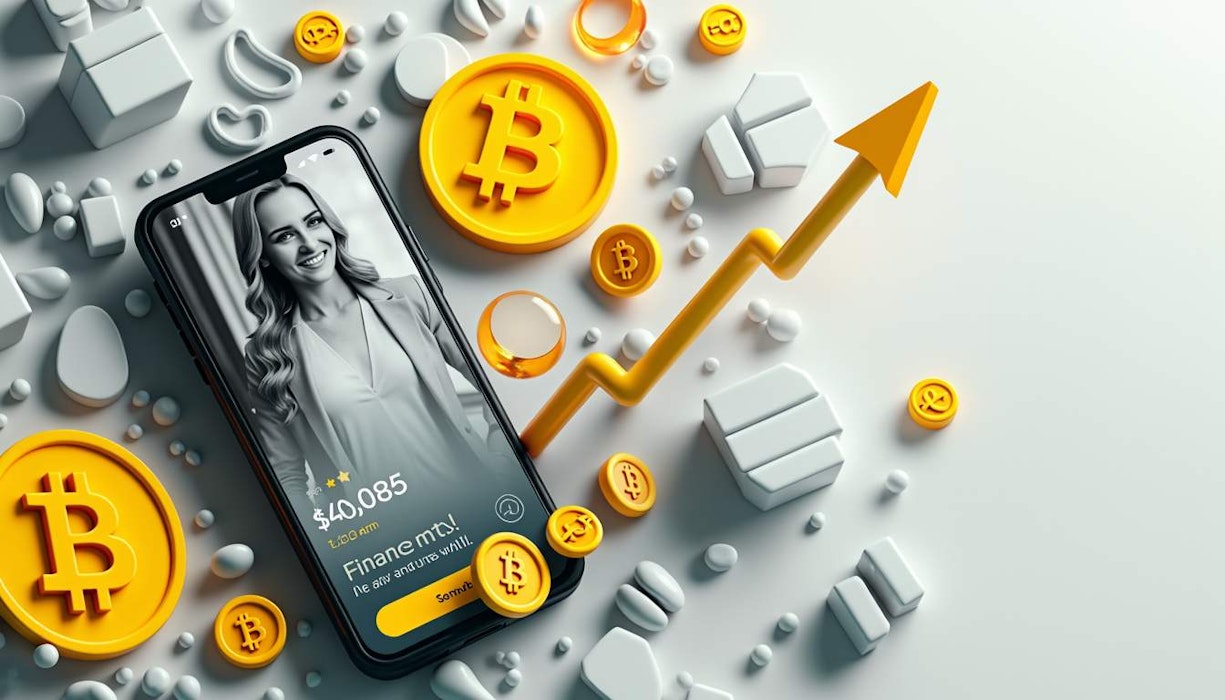What features define an effective cryptocurrency buying app?
Q: Why is user-friendly design pivotal for crypto buying apps?
A: An intuitive interface is essential, particularly for newcomers. A well-designed app simplifies the trading process, making it easy to navigate and execute transactions quickly without extensive training.
Q: Is security a top priority for crypto buying apps?
A: Security remains a crucial factor. Reputable apps prioritize user security through two-factor authentication (2FA), cold storage for assets, and secure handling of transactions, minimizing the risk of hacks or unauthorized transactions.
Q: Why prioritize diversity in supported cryptocurrencies?
A: The ability to trade various cryptocurrencies allows for diversified investment strategies. Apps that feature an extensive selection enable users to explore different options that fit their interests and risk appetites.
Q: How do fees factor into app choice?
A: Understanding and comparing the fee structures of different apps can lead to significant savings, especially if high-volume trading is anticipated. Transparent fee policies help users determine the most cost-effective options aligned with their trading habits.
Q: Are educational resources beneficial for users?
A: They are invaluable. Access to guides, tutorials, and robust customer support can be pivotal for new users seeking assistance in making informed trading decisions.
Q: Why does regulatory compliance matter?
A: Adherence to regulation can enhance trust in the app. Regulatory compliance also protects users, ensuring the platform operates within lawful parameters.
How can these apps provide a buffer in hyperinflationary economies?
Q: Can cryptocurrencies act as a reliable store of value in hyperinflationary environments?
A: Indeed, in situations where national currencies experience rapid devaluation, cryptocurrencies such as Bitcoin or stablecoins offer a hedge against inflation. Many individuals in hyperinflation-affected nations use crypto to preserve their assets.
Q: Do such apps facilitate financial inclusion?
A: Yes, they can provide financial services to individuals who are typically shut out of traditional banking avenues. This enhances economic participation in regions experiencing inflation or economic instability.
Q: How is security and accessibility achieved despite infrastructure challenges?
A: Many reliable apps employ strong encryption and two-factor authentication. Although limited internet access and volatile prices can be barriers, stablecoins can improve transaction reliability for smart device users.
Q: What role does DeFi play in this context?
A: DeFi platforms can broaden access to borrowing, lending, and trading opportunities, potentially incorporating those often excluded from financial infrastructures.
What are the fee structures for small businesses using these apps?
Q: Is there significant variance in fees between gateways?
A: Yes, transaction fees can vary widely. For example, Coinbase imposes a 1% fee, while Crypto.com doesn't charge any, yet neither has a guaranteed conversion rate. PayPal’s fees can be less explicit, with charges per transaction impacting the total.
Q: Are tiered fees common?
A: Many popular exchanges do have tiered pricing models. Platforms like Binance and Kraken reward high-volume traders with reduced fees, making them attractive for bulk transactions.
Q: What should small businesses factor into their decision?
A: Volume, fee type, and potential additional costs are all significant. For instance, businesses making numerous crypto payments may benefit from platforms with lower fees for higher transactional volumes.
What unexpected costs might users encounter?
Q: Do network fees impact transaction costs?
A: Network fees directed to miners can influence the total payment cost and may fluctuate based on blockchain congestion.
Q: Are customers liable for conversion fees?
A: Yes, when engaging in transactions that require fiat to crypto conversions, users might also pay fees for these services.
Q: Do regulatory compliance measures add costs?
A: Ensuring compliance with regulations can increase transaction costs, as the processes involved are often complex and labor-intensive.
Q: Could intermediaries introduce additional fees?
A: Many cross-border payment systems still involve intermediaries, all of which may charge for their services in some capacity.
How do apps stand against traditional banks on security and reliability?
Q: What security measures do apps implement?
A: Platforms like Crypto.com and Coinbase utilize strong security measures, including two-factor authentication, cold storage, and transparent transaction records on the blockchain.
Q: Are these platforms immune from hacks?
A: No, they are not immune. Although strong security is employed, breaches can occur, as evidenced by Crypto.com’s episode in 2022.
Q: How secure are traditional banks?
A: Banks closely adhere to strict regulations, offering a high level of assurance and protection to consumers, but they are also not impervious to cyberattacks.
Q: How reliable are apps compared to banks?
A: While apps can offer around-the-clock support, the robustness and reputation of traditional banks are often considered more reliable.
Q: Are there other factors to consider?
A: The volatility of cryptocurrencies can be a double-edged sword, and the absence of regulation brings inherent risks. However, crypto can promote financial inclusion in areas underserved by banks.
What should beginners consider when venturing into crypto buying apps?
Q: Why begin small?
A: Small investments reduce exposure to significant losses and allow newcomers to familiarize themselves with market behavior.
Q: Why is ongoing education crucial?
A: The crypto landscape is dynamic; ongoing education ensures traders remain informed of trends and strategies.
Q: Why practice diversification?
A: Diversifying a portfolio can mitigate the losses from poor-performing assets while maximizing potential gains across different cryptos.
Q: What resources do beginners need?
A: Reliable apps provide educational resources that are key for navigating the crypto space.
Q: How can users protect their investments?
A: Strong security practices including strong passwords, 2FA, and secure storage through wallets are vital for protecting investments from unauthorized access.
By thoughtfully considering these elements, both novices and seasoned traders can better navigate the complex landscape of cryptocurrency buying apps.
